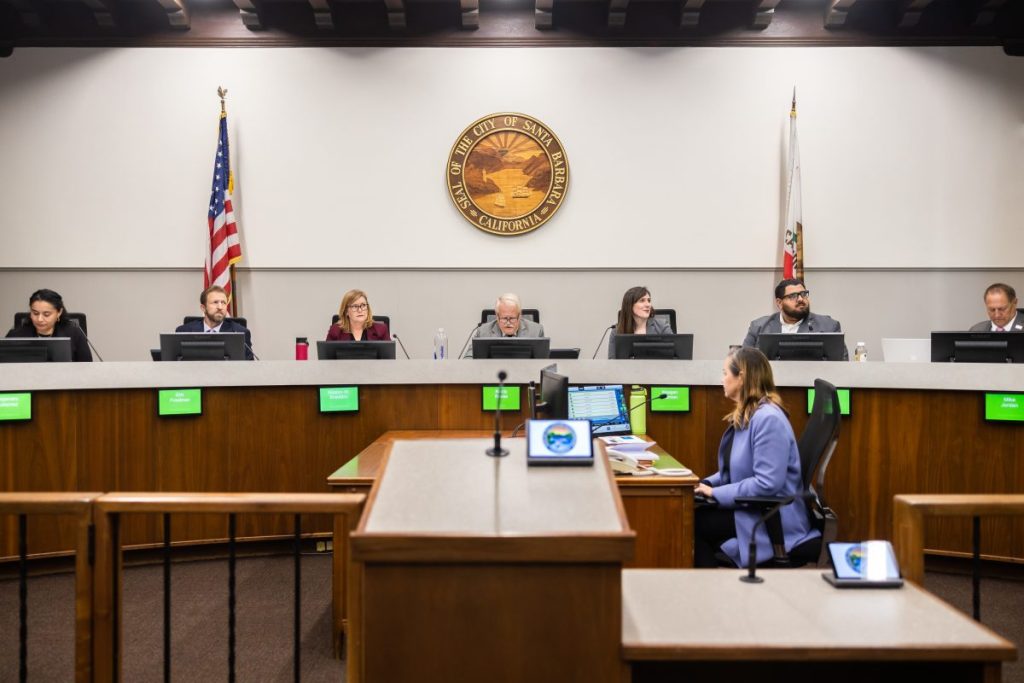Santa Barbara is sharpening the blades against short-term rentals, which, despite being illegal in most of the city, continue under the radar — and out in the open — with an estimated 1,000-1,500 illegally operating in the city at any given time.
The City Council unanimously voted Tuesday to put $1.175 million toward a Short-Term Rental Enforcement Pilot Program in an earnest attempt to tackle the growing problem, which has caused an additional strain on the city’s already depleted housing stock.
“Because illegal short-term rentals are generally more lucrative than long-term rentals, their existence compounds the city’s existing housing crisis,” said City Attorney Sarah Knecht, who presented the proposed enforcement program to the council.
According to Knecht, the program wouldn’t necessarily be changing the laws regarding short-term rentals — which are permitted to operate in the select coastal zones but are illegal in all other inland areas of the city — but the pilot program would put some bite behind the city’s already existing but admittedly ineffective enforcement process.
“We want to put some teeth behind what’s already on the books,” Knecht said. “We’re not proposing any new regulations.” That enforcement, she said, would take “some effort and muscle and money” to get going.
Currently, the city permitted 16 short-term rentals in the inland areas: the downtown central business areas, Coast Village Road, Milpas, State Street, San Roque, and Cliff Drive; three are permitted in the coastal zone; and 112 vacation rentals in the coastal area that pay transient occupancy tax but are not technically permitted for that use.
But a search of vacation rentals listed as available on Airbnb yielded more than 1,000 active listings in Santa Barbara, and, according to Knecht, companies that track online data estimate that as many as 1,500 illegal rentals are operating here right now.
In 2015, online platforms such as Airbnb led to an “explosion of short-term rentals in the city,” she said. That was when the city allocated $170,000 to institute the current enforcement program. That original attempt, however, was both underfunded and inefficient since it did not include a criminal enforcement division.
Instead, it led to two high-profile cases in which the courts decided that enforcement in the coastal zone was only possible if the property received a “nuisance-based complaint,” but that the city could, in fact, proactively enforce in the non-coastal zones.
“In inland zones, short-term rentals are prohibited — we will prosecute,” Knecht said.
Under the new program, the city will seek criminal enforcement against illegal operators, but not until it attempts to pursue voluntary compliance with the property owners first. This could include past-due taxes, which are estimated to be up to $15,000 in coastal areas and $700,000 or more in inland areas.
All this would be achieved with a sincere effort to “identify, audit, and process payments” for all short-term rentals, which would cost an estimated $450,000; another $700,000 toward investigators to look into illegal rentals; $225,000 toward prosecution; and another $15,000 toward City Attorney Office costs.
Councilmember Mike Jordan, who said the old system amounted to “one office taking your money and another sending you enforcement notices,” asked if the city could consider skipping the outreach part of the process and jump right into prosecution as soon as illegal operators are identified. “Why don’t we launch right into enforcement? Why do we bother with outreach?”
City staff said that the council could decide for a more aggressive enforcement process after the one-year pilot program.
The council voted 6-0 in support of the program (Mayor Randy Rowse was absent during the vote), with Councilmember Kristen Sneddon saying it was “high time” that the city was enforcing against illegal short-term rentals, though she suggested it could be “more restrictive in the future.”
To see if a short-term rental falls in the restricted area of the city, check the short-term rental zoning map online at tinyurl.com/strentalzoningmap.

